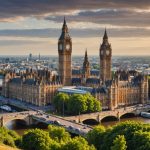Economic Effects of UK Tourism on Local Communities
Tourism in the UK significantly shapes local employment, offering a wide range of job opportunities across sectors like hospitality, retail, and transportation. Many small towns and rural areas depend heavily on tourism for seasonal and permanent jobs. This surge in employment not only reduces local unemployment rates but also improves residents’ income levels.
The UK tourism economic impact extends beyond jobs. It stimulates business growth by driving demand for services like accommodations, guided tours, and dining. Local entrepreneurs often seize these opportunities to launch or expand ventures, fostering a dynamic business environment. Increased visitor spending acts as a catalyst for developing new enterprises, from artisan shops to cultural attractions.
Also to see : How can tourists make the most of a weekend getaway in the UK?
Moreover, the tourism revenue generated supports public infrastructure and community projects, reinforcing overall economic development. However, the distribution of this income is uneven, often concentrated in key tourist hotspots. Sustainable management ensures that tourism revenue benefits the wider community, minimizing negative effects like rising living costs or environmental degradation.
Understanding these economic effects helps local authorities and businesses plan strategically. Engaging communities in tourism allows them to harness the benefits while preserving cultural and environmental assets, promoting long-term economic resilience.
Also to read : What Surprising Insights Can You Discover About UK Tourism Today?
Social and Cultural Impacts of Tourism in the UK
Tourism in the UK brings significant social effects of tourism that influence communities’ daily lives and identities. Locals often experience changes to their traditional way of life as visitor numbers rise. This can lead to shifts in community identity, where long-established customs may be altered or commercialised to cater to tourists.
However, tourism also fosters cultural exchange. Visitors and residents interact, sharing traditions, languages, and stories. This exchange can promote understanding and appreciation of diverse cultures, enriching community well-being. In some cases, tourism supports the preservation of cultural heritage by funding the upkeep of historic sites and encouraging local crafts, which might otherwise fade away.
On the downside, social challenges emerge, including overcrowding, strain on public services, and inflated housing costs due to short-term rentals targeting tourists. These issues can affect the community well-being, causing tension between residents and visitors. Managing these effects requires balancing economic benefits with protecting the social fabric, ensuring that tourism enhances rather than diminishes local life.
Understanding these complex social impacts helps shape policies that support sustainable tourism benefiting both locals and tourists alike.
Environmental Consequences of Increased Tourism
Increased tourism significantly amplifies the environmental impact of tourism, exerting considerable pressure on natural resources and local infrastructure. Popular destinations often face overcrowding, leading to overuse of water, energy, and waste management systems. This strain not only diminishes the quality of the natural environment but also affects residents’ daily lives and local economies.
Sustainability has become a pivotal focus in mitigating these issues. Many regions implement initiatives promoting responsible travel, eco-friendly accommodations, and conservation efforts. Effective resource management ensures that tourism growth does not compromise ecosystem health or biodiversity. For instance, some destinations restrict visitor numbers or invest in renewable energy to reduce carbon footprints.
Case examples highlight both challenges and solutions. In coastal areas, excessive tourism has caused coral reef damage and beach erosion, whereas mountain regions struggle with deforestation and trail degradation. Conversely, some communities have successfully balanced tourism development with environmental preservation by engaging stakeholders and adopting green practices.
Promoting sustainable tourism not only protects natural heritage but also enhances visitor experiences, fostering long-term benefits for destinations and travelers alike.
Transformation of Local Infrastructure and Services
Understanding the evolving landscape
Tourism infrastructure UK plays a critical role in shaping communities. Investment in local services often follows increased visitor numbers, prompting upgrades and expansions in transport networks, public amenities, and recreational facilities. For example, roads may be widened or new bus routes introduced to ease access to popular destinations.
However, this growth can strain existing public services. Healthcare centers might face higher patient loads during peak seasons, while waste management systems must handle increased volume. Similarly, policing needs may rise to ensure safety amid larger crowds.
Balancing these pressures with community interests requires strategic planning. Local authorities often engage with residents to align improvements with both tourism and community priorities, fostering sustainable development. Encouraging community investment helps provide resources needed for enhanced local services without sacrificing residents’ quality of life.
Addressing this balance is key to maintaining harmony between visitors and locals. Emphasizing efficient management in healthcare, waste, and policing supports this goal while promoting a welcoming and functional environment for everyone.
Case Studies: Tourism’s Impact in Select UK Communities
Exploring firsthand experiences and outcomes
Tourism’s influence on local community experiences varies significantly across the UK. In Cornwall, increased visitor numbers fuel economic growth, supporting local businesses and regional development. However, this surge strains infrastructure, leading to congestion and seasonal job insecurity for residents.
Edinburgh offers a contrasting picture. The city benefits from cultural tourism, boosting heritage preservation and employment opportunities. Yet, some residents express concerns about rising living costs and the dilution of authentic community life. These voices highlight the importance of balancing tourism benefits with residents’ quality of life.
The Lake District illustrates both sides vividly. While tourism generates critical revenue and enhances facilities, environmental degradation and overcrowding present ongoing challenges. Local campaigns emphasize sustainable tourism policies to mitigate these issues.
Across these case studies UK tourism reveals complex dynamics where economic gains coexist with social and environmental pressures. Policy recommendations drawn from these regions stress the need for inclusive planning, community engagement, and sustainable practices. Emphasizing local perspectives ensures that tourism development aligns with the aspirations and well-being of the host communities.
Trends, Data, and Expert Perspectives on UK Tourism
UK tourism trends reveal a complex landscape shaped by evolving traveler preferences and broader economic factors. Recent industry reports emphasize a steady recovery in visitor numbers post-pandemic, with domestic tourism experiencing significant growth. According to government data, regions outside London, including coastal and rural areas, are attracting more tourists, reflecting a shift towards experiential and nature-based travel.
Expert opinions highlight the importance of sustainable tourism development. Academics stress that aligning tourism growth with environmental conservation can mitigate negative community impacts. Policymakers echo this, advocating for investment in infrastructure that supports responsible tourism while enhancing local quality of life. Local leaders emphasize balancing visitor influx with preserving cultural heritage and managing seasonal fluctuations effectively.
Emerging trends in UK tourism include increased demand for digital engagement, personalized travel experiences, and wellbeing-focused trips. The rise of eco-conscious travelers is encouraging businesses to adopt green practices. Additionally, data from industry surveys shows younger demographics favor interactive and socially responsible tourism options, signaling a potential transformational shift.
Collectively, these insights form a roadmap for UK tourism that prioritizes community benefit, economic resilience, and environmental stewardship, guiding stakeholders towards innovative solutions in an ever-changing landscape.





